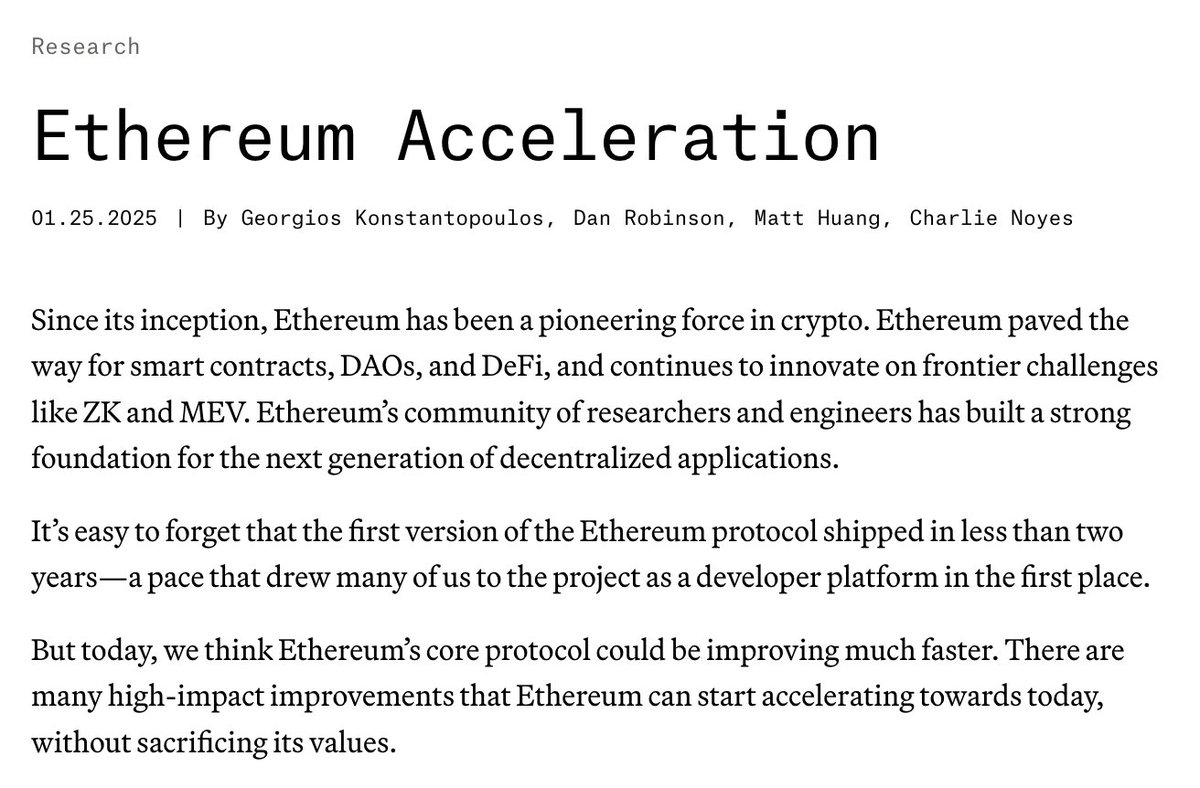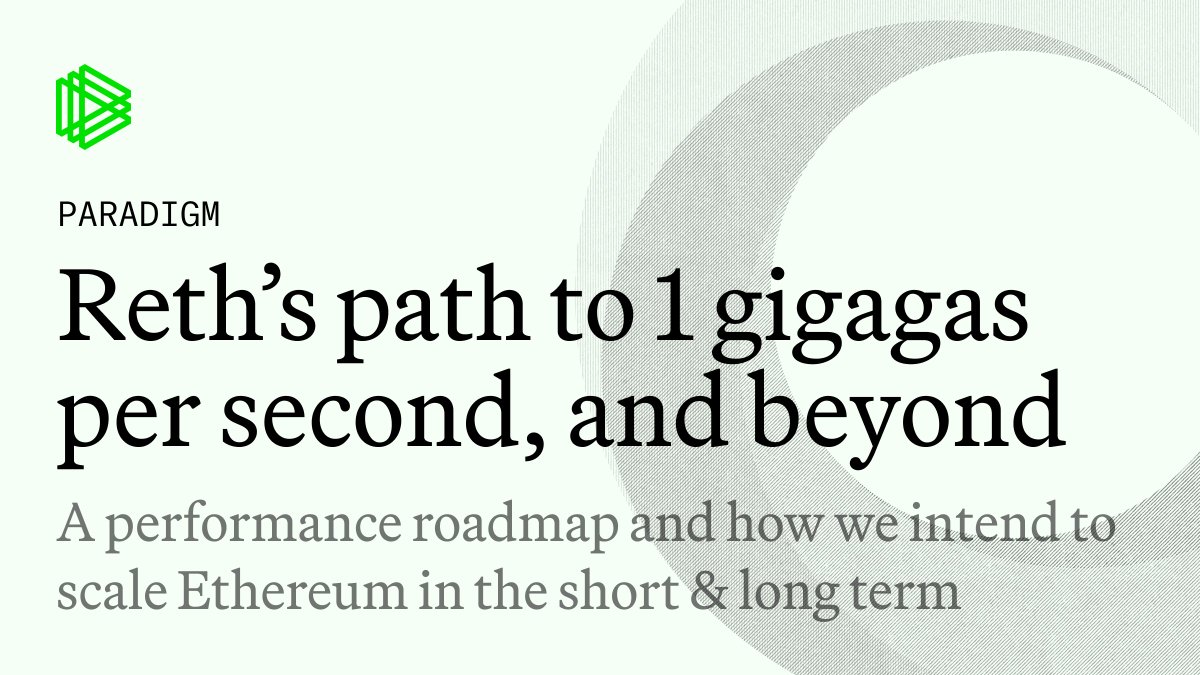Introducing the Porto Developer Preview!
What if passwords did not exist?
What if the web was built natively for payments?
Porto is the open-source Typescript library we've built @ithacaxyz that gives accounts the superpowers to answer these questions.
Learn more below 🧵
What if passwords did not exist?
What if the web was built natively for payments?
Porto is the open-source Typescript library we've built @ithacaxyz that gives accounts the superpowers to answer these questions.
Learn more below 🧵

Porto gives superpowers to every account.
A demo is worth a million words.
Visit the Porto homepage and explore the flows we have created.
No passwords, no browser extensions.
It will only get better from here.
porto.sh
A demo is worth a million words.
Visit the Porto homepage and explore the flows we have created.
No passwords, no browser extensions.
It will only get better from here.
porto.sh

We have started polishing our documentation, which as you'll notice is itself a Porto app.
See below for the SDK docs, with examples for onboarding, payments & subscriptions. porto.sh/sdk
We have detailed docs on our smart contracts as well! porto.sh/contracts
More soon! Contribute! github.com/ithacaxyz/port…
See below for the SDK docs, with examples for onboarding, payments & subscriptions. porto.sh/sdk
We have detailed docs on our smart contracts as well! porto.sh/contracts
More soon! Contribute! github.com/ithacaxyz/port…

The one thing we want you to do is to build apps with Porto, and share them with us, and online.
Tag me @gakonst & @ithacaxyz.
If you're looking for tech support, we'll be there for you, like we've been for all of our open source tools users.
Join the Telegram room (link in the Github repository: ).github.com/ithacaxyz/porto
Tag me @gakonst & @ithacaxyz.
If you're looking for tech support, we'll be there for you, like we've been for all of our open source tools users.
Join the Telegram room (link in the Github repository: ).github.com/ithacaxyz/porto

Every account should be a Porto account.
Porto is great for developers of applications, key management services, or wallets.
We have 3 core principles building Porto:
1. Developer-first: Porto works out of the box with Wagmi & Viem.
2. Performance & cost-effectiveness: We redid years of account abstraction research and have state-of-the-art performance and tx latency.
3. Modularity: Porto works standalone, or headless.
Porto is great for developers of applications, key management services, or wallets.
We have 3 core principles building Porto:
1. Developer-first: Porto works out of the box with Wagmi & Viem.
2. Performance & cost-effectiveness: We redid years of account abstraction research and have state-of-the-art performance and tx latency.
3. Modularity: Porto works standalone, or headless.

Porto works great with OAuth-based key management services, enabling you to upgrade your EOAs into smart contracts using EIP-7702.
For example, if you're a @privy_io user, using Porto headlessly means that you get all the benefits of its backend, without changing anything in how you manage your users or your frontend.
Think of it like another account abstraction provider, but faster, cheaper, feature-rich, and developer-friendly.
For example, if you're a @privy_io user, using Porto headlessly means that you get all the benefits of its backend, without changing anything in how you manage your users or your frontend.
Think of it like another account abstraction provider, but faster, cheaper, feature-rich, and developer-friendly.
Porto's gas usage vs Solady's ERC4337 implementation, which should be the most gas-efficient one in the market (but let us know if this is not right, and we can re-benchmark)!
github.com/ithacaxyz/acco…
github.com/ithacaxyz/acco…

We are solving some of the hardest problems for developers.
We think from first principles, and will happily reinvent the wheel if it means getting to the next frontier.
Here are some of the things we do for UX & onboarding.
We think from first principles, and will happily reinvent the wheel if it means getting to the next frontier.
Here are some of the things we do for UX & onboarding.

Beyond UX & onboarding, Porto Accounts are cheap, fast, reliable & programmable.
Billing? Gaming? Creator tipping? Agentic workflows?
Porto Accounts can do it all.
Billing? Gaming? Creator tipping? Agentic workflows?
Porto Accounts can do it all.

Where are we going?
Well, we're going to prod in the coming weeks, of course.
But beyond that:
1. We are excited to increase the security of Porto Accounts, so that we can conveniently store billions of dollars in them. We have a bug bounty rolling, and we'll continue investing in our security. Note that we're just doing a developer preview today, so we're still early and we're looking for people to work with us.
2. We are excited to solve interoperability at the wallet/application layer. Our ability to modify the stack as we wish will let us do wonders here in the coming weeks.
Well, we're going to prod in the coming weeks, of course.
But beyond that:
1. We are excited to increase the security of Porto Accounts, so that we can conveniently store billions of dollars in them. We have a bug bounty rolling, and we'll continue investing in our security. Note that we're just doing a developer preview today, so we're still early and we're looking for people to work with us.
2. We are excited to solve interoperability at the wallet/application layer. Our ability to modify the stack as we wish will let us do wonders here in the coming weeks.

All of this is powered by a new account abstraction stack, which we just call...the "account". You can learn more in the repository. Make sure to star it!
github.com/ithacaxyz/acco…
github.com/ithacaxyz/acco…
The Porto SDK is also available for you to look and contribute! Make sure to star it as well!
github.com/ithacaxyz/porto
github.com/ithacaxyz/porto
Introducing: Porto Developer Preview, by @ithacaxyz.
Sign in with superpowers.
npm i porto.
ithaca.xyz/updates/porto-…
Sign in with superpowers.
npm i porto.
ithaca.xyz/updates/porto-…
• • •
Missing some Tweet in this thread? You can try to
force a refresh














